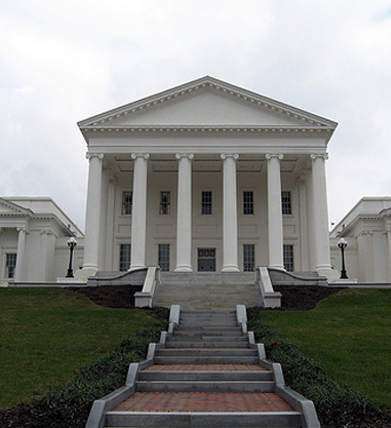By: Jack Minchew
On the November 2012 ballot, below the well-known elections for President and Senate, and below the local elections for Mayor and Town Council, there are Voter Referendums, questions to the voters dealing mostly with whether the county, state, or town should borrow money in the form of bonds to pay for new one-time capital expenditures such as schools or public safety. In Virginia, ballot initiatives are used to amend the state constitution. For an amendment to become a part of the Constitution, it has to be approved for 2 consecutive years in the Virginia General Assembly, and then approved by the voters. These amendments have drawn controversy before, such as the 2006 Marshall-Newman Amendment, which defined marriage as existing between a man and a woman, effectively banning all forms of gay marriage or civil unions. That measure was approved by 57% of Virginians. On the ballot this time are 2 constitutional amendments, and 2 Loudoun County bond initiatives, only one of them with any whiff of controversy.
The 2 Loudoun County bond initiatives are relatively straight forward. One authorizes the county to issue no more than $2,750,000 worth of bonds for the purpose of purchasing new equipment for fire and rescue services. The other bond initiative is $136,150,000 worth of debt in order to build a new high school to relieve overcrowding at Briar Woods, in addition to the renovation of Loudoun County High School and the construction of a new elementary school. Neither is particularly controversial and both are expected to pass easily.
The first question amends the constitution to change the dates of the veto session of the general assembly so that it does not conflict with the Jewish holiday of Passover. It is expected to pass easily.
The second question amends the state constitution pertaining to the eminent domain power of the government. The eminent domain power authorizes government entities to take private land, providing that they pay the fair market price for it. In other words, the government can make you sell your land, but they have to pay you a fair price. This power has historically been used to acquire land for parks and schools, but has occasionally been used for other purposes. The power is currently limited only by what is “for the public good.” In 2005, a case known as Kelo vs. City of New London reached the U.S. Supreme court, where the court held that the government could take land “for the public good” and give it to another non-governmental entity. In the case, the City of New London used its eminent domain power to take Susette Kelo’s house for the purpose of giving it to a developer to build a shopping center. Though the developer eventually ran out of money, Kelo’s house was razed, and the land was turned into a garbage dump. Kelo lost the case, but it has lead to constitutional amendments and other legislation across the country such as this. Supporters of the amendment say that it will protect property owners from unfair government actions. The amendment is expected to pass, but there are some opponents who say that it will cripple local government’s ability to redevelop slums and abandoned buildings, promoting crime and unsafe living conditions.






